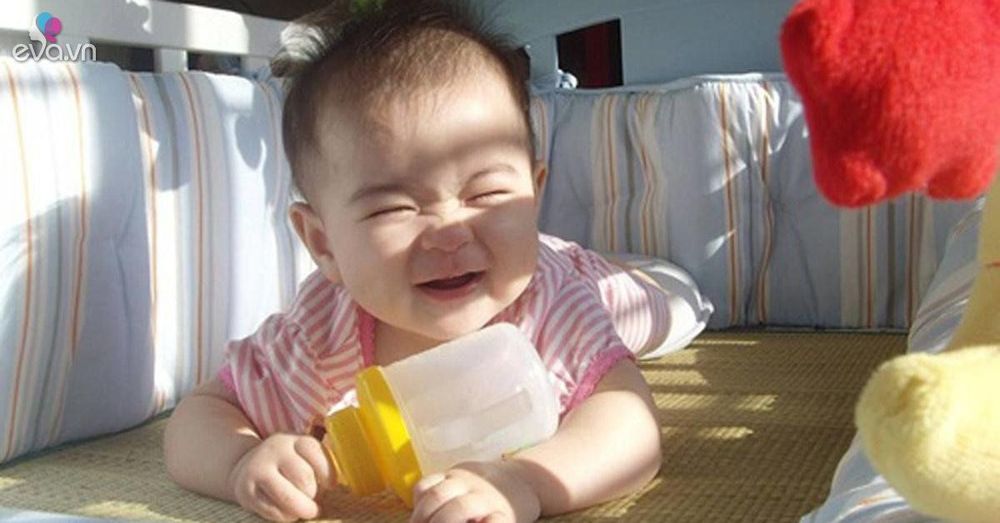Master, Medical Doctor
Phan Thị Cẩm Vân
This article is professionally consulted by Master, Doctor Phan Thị Cẩm Vân - Neonatologist - Pediatrics - Neonatology Department - Vinmec Danang International General Hospital. She has 7 years of experience as a resident doctor and pediatric-neonatal treating doctor at Hue Central Hospital and Hue University of Medicine and Pharmacy Hospital. Her specialties are treating pediatric respiratory diseases, digestive diseases, infectious diseases, caring for and treating newborns, and neonatal resuscitation.
Sunbathing helps newborns absorb sunlight, produce enough vitamin D for the body, reduce rickets, and treat neonatal jaundice. 7 to 10 days after birth is the ideal time for mothers to gradually introduce their babies to sunlight.
1. Sunbathing for newborns
Vitamin D is very important for calcium absorption, growth, and normal development, helping to maintain bone health in children. Vitamin D deficiency in newborns causes many serious problems, such as irritation, discomfort, and increased risk of infection. Even sudden vitamin D deficiency can cause rickets, leading to bone deformities, especially in the legs.
In the 1940s to 1970s, when the incidence of skin cancer increased alarmingly, scientists began to investigate. They warned about the negative effects of sunlight on the skin. Therefore, instead of sunbathing to supplement vitamin D, people should improve their diet or use infrared lamps.
Later, many studies have shown that sunbathing for 30 minutes a week provides babies with the essential amount of vitamin D for their bodies. Daily sun exposure is very beneficial for a child's overall development. Sunbathing helps newborns absorb sunlight, produce enough vitamin D that the body needs, reduce rickets, and treat neonatal jaundice. Moreover, sunbathing for newborns also helps prevent diaper rash, as sunlight has an antibacterial effect.
2. How long after birth can newborn babies sunbathe?
A newborn who is 3 days old and has no health issues, born full-term, can start getting used to sunlight with a morning sunbath of about 15 minutes.
If you're more cautious, you can wait until the baby is more stable, around 7-10 days after birth, before starting sunbathing. Parents shouldn't worry too much about the baby catching a cold, as the heat from the sun is enough to warm the baby. Moreover, preventing colds in newborns primarily depends on the correct sunbathing method.
However, for babies under 1 month old, you should be careful to avoid the baby getting cold while sunbathing. Therefore, it's best to expose the baby's stomach, legs, and arms to the sun while keeping the chest and back warm.
You shouldn't sunbathe a newborn immediately after birth:
- Risk of Infection
Bathing a newborn immediately after birth washes away the white, waxy coating that covers their entire body. This coating contains proteins that help prevent some common infections. Therefore, it acts as a natural antibacterial ointment

- Unstable blood sugar levels
Exposing newborns to sunlight too early can lower blood sugar levels. In the first few hours after birth, babies are still adjusting to life outside the womb - Body temperature control.
The temperature inside a mother's body is usually 37°C, but most babies are born in rooms with a temperature of around 25°C. Exposing newborns to sunlight too early causes their body temperature to fluctuate: the cool, windy air contrasts with the warmth of the sunlight, making babies more susceptible to health complications.
3. Sunbathing newborns the right way
3.1. Sunbathing for Babies in Summer
The sun is bright and intense in the summer, early in the day. It's best to sunbathe your baby early in the morning to avoid the harmful effects of UV rays on your baby's delicate skin. Moreover, the hot sun can make your baby uncomfortable. The ideal time for babies to sunbathe in the summer is around 6-7 am. It's best to sunbathe your baby earlier when the sun is gentler. After sunbathing, you can wipe off your baby's sweat to prevent heat rash. Choose a quiet, clean, and airy place to sunbathe, avoiding direct sunlight on your baby's eyes. On excessively hot days, limit sunbathing to reduce the risk of dehydration when your baby sweats too much. Additionally, the appropriate time for morning sunbathing may vary depending on the region and the sun's intensity.
You can gradually increase the sunbathing time for your baby. In the first few days, newborns should only sunbathe for a few minutes, then gradually increase to 5-10 minutes. The goal is to help your baby get used to the sun and not cry. The sunbathing time each time should not exceed 20 minutes.
3.2. Sunbathing for Babies in Winter
In winter, the cold air persists from night, and there is less sunlight, making it easy for your baby to catch a cold and develop respiratory illnesses. Therefore, it's best to take your baby outside early. Moreover, wearing too many warm clothes outside can prevent your baby's skin from directly contacting sunlight. As a result, newborns born in winter are at risk of vitamin D deficiency. It's often cloudy in winter, the weather is cold, and the sun rises late, but the sunlight is weak. Therefore, you should wait until warmer to sunbathe your baby, usually around 8:30-9 am. On excessively cold days or when it's windy, avoid sunbathing your baby to ensure their health. When sunbathing your baby, choose a quiet, clean, and airy place without drafts.

3.3 Important notes for Sunbathing for Newborns
- After about 7-10 days, you can start sunbathing your baby. It's not advisable to sunbathe your baby too early, as their delicate skin can be severely damaged by sunlight, leading to burns, dermatitis, allergies, and a weakened immune system.
- After 10 AM, ultraviolet rays become more active and hurt the skin. Therefore, this is not an ideal time for sunbathing.
- When sunbathing your baby, completely undress them and use a hat to cover their neck, eyes, and genital area to protect these parts from UV rays.
- While sunbathing, talk to your baby, massage, and stroke them to make them feel comfortable.
- Do not sunbathe your baby through a window, as the glass blocks the sunlight, and your baby cannot absorb vitamin D.
- Babies with darker skin need to sunbathe longer than those with lighter skin.
- After sunbathing, breastfeed your baby to replenish the lost fluids as they may have sweated.
- If your baby's skin becomes red or shows any other unusual signs after sunbathing, stop sunbathing and monitor them. If the skin condition does not improve after a few days, take your baby to a doctor for examination.
Sunlight helps your baby absorb the necessary vitamin D. Therefore, you should let your baby get some sun every day. 7-10 days after birth is the perfect time for your baby to start getting used to the sun. You should not sunbathe your baby too soon before that, nor should you wait until your baby is severely deficient in vitamin D before starting.
As a cornerstone of Vinmec Healthcare System, our Pediatrics Department consistently delivers exceptional care and has earned high praise from industry experts. Key highlights include:
- A team of renowned pediatric specialists: Our department boasts a distinguished group of highly qualified professionals (professors, associate professors, doctors, and masters) with extensive experience from leading hospitals such as Bach Mai and 108. Our doctors are well-trained, skilled, empathetic, and deeply understanding child psychology. In addition to our domestic specialists, we collaborate with international experts from Japan, Singapore, Australia, and the United States to stay at the forefront of the latest and most effective treatment protocols.
- Comprehensive services: Vinmec offers a comprehensive range of pediatric services, from newborn care to childhood and vaccinations, all adhering to international standards. We partner with parents to provide lifelong care for their children, from infancy to adulthood.
- Advanced techniques: Vinmec has successfully implemented numerous advanced techniques, significantly improving the treatment outcomes for complex pediatric conditions. These include neurosurgery, craniotomy, and hematopoietic stem cell transplantation for cancer treatment.
- Professional care: Beyond understanding child psychology, Vinmec prioritizes creating a fun and playful environment to help children feel comfortable and cooperative during their visits. This approach enhances the overall treatment experience and improves outcomes
Please dial HOTLINE for more information or register for an appointment HERE. Download MyVinmec app to make appointments faster and to manage your bookings easily.














